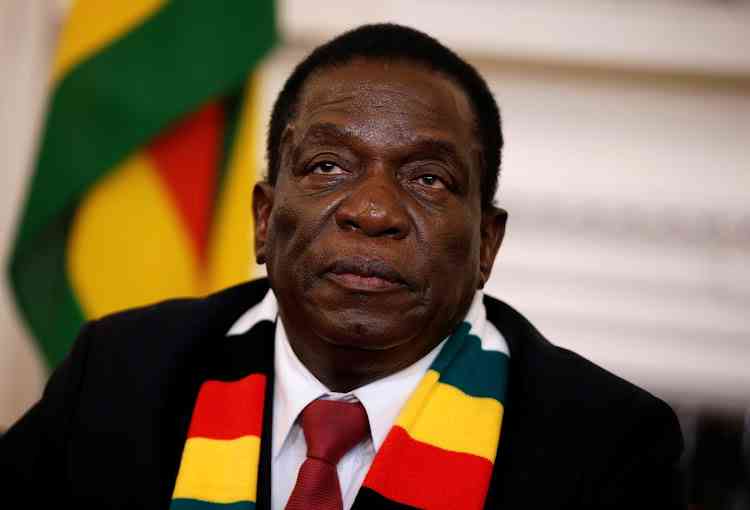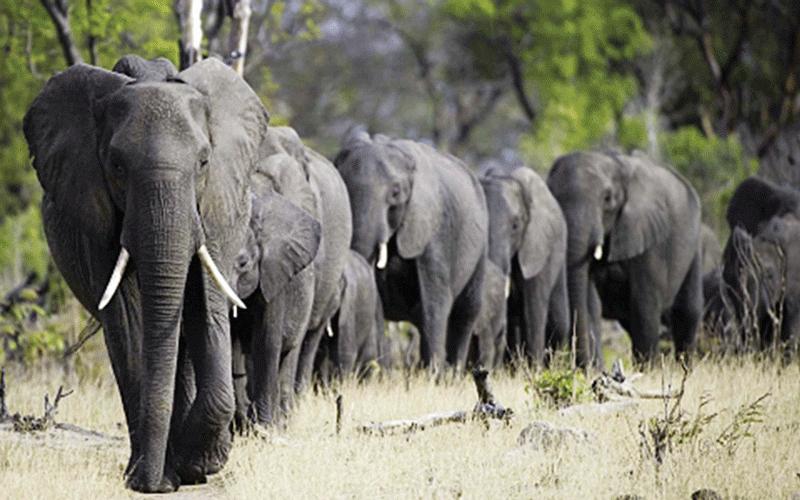
IS it not embarrassing that Zimbabwe has never experienced a smooth democratic transfer of power since independence 43 years ago?
In fact, it gets even more shameful that the only time power was transferred smoothly from one leader to another was during the colonial era. This means that, in the so-called “democratic Zimbabwe”, we have had leaders who do not want to leave office.
Whereas, in “oppressive Rhodesia”, there were at least eight prime ministers — from Charles Coghlan (October 1, 1923) to Ian Douglas Smith (April 13, 1964) — all in just a 41-year timeframe yet covering six different governing parties.
The last time Zimbabweans actually witnessed one leader passing on power to another was on the midnight of April 17, 1980, as the country gained its freedom from colonial rule.
Since then, we have only known Zanu PF.
As much as, on paper, it can be claimed that we have had two executive presidents, the truth is that one only replaced the other after a military coup d’état in November 2017.
Had it not been for that, Robert Gabriel Mugabe would have died in office.
Now, Emmerson Dambudzo Mnangagwa appears intent on fulfilling his predecessor’s dream that only death will remove him from the presidency. This is in view of his widely suspected desire to amend the country’s Constitution by either removing or extending two-term limits for the head of State.
- What is wrong with Zim leaders?
Keep Reading
In spite of section 328 specifically prohibiting anyone who occupies or who previously occupied the particular office from benefiting from any term limit amendment — that has never stopped the Mnangagwa regime from flagrantly disregarding the supreme law of the land.
Is that not what transpired in 2021, when the Mnangagwa administration extended the retirement age [section 186(1)(a)] of serving court judges from 70 to 75 years, as long as he or she still had the “mental and physical fitness to continue in office”?
What I do not understand in all this, though, is why Zimbabwean leaders are averse to leaving office.
This morning, as I watched the news, it was so inspiring seeing former British Prime Minister David Cameron appearing most comfortable in his new portfolio as foreign secretary.
In the eyes of Zanu PF, this would have been interpreted as some humiliating demotion.
However, that is not how the civilised world operates.
Even right here in southern Africa, we witnessed the late founding President of a democratic South Africa, Nelson Rolihlahla Mandela (1994–1999), voluntarily vacating office after only one term.
Did we not admire him, with undiluted pride, as he enjoyed his retirement — while at the same time actively engaging in charity work, especially through his Nelson Mandela Foundation? This trend continued with his successor, Thabo Mbeki (1999–2008), who is also doing phenomenal work with his “African Renaissance” foundation.
Botswana is far off, with former president Festus Mogae (1998–2008) engaged in the fight against HIV/Aids and currently serving as a special envoy of the United Nations secretary-general on climate change.
In Namibia, Hifikepunye Pohamba (2005–2015) opted to retire from public life and take a well-deserved rest.
In the US, I am always touched by images of former President Barack Obama (2009–2017) enjoying life with his wife Michelle. Bill Clinton (1993–2001) is busy touring the world, giving speeches, writing books and campaigning for Democrats (including his wife, Hillary, in her 2017 presidential bid).
So, what is wrong with Zimbabwean leaders?
Why did Mugabe want to remain in office even as a nonagenarian — having been ousted from power when he was 93 years old? And Mnangagwa is doing exactly the same!
At present, he is officially 81 years old (although he is widely believed to be 85), yet there are already clear indications that he is determined to run again in 2028.
He will be 86 — meaning he will finish that term at 91 years old!
Why, why, why?
Why do these leaders appear unwilling to retire and enjoy their well-deserved rest? Do they believe being a President is the alpha and omega of life — or the apex of achievement, such that life outside the presidency is a downgrade?
If so, then we have the misfortune of electing some of the weirdest characters in the world as our leaders.
Surely, who would conclude that Mandela was a lesser man in his exceptional work with HIV/Aids? In fact, such thinking betrays a glaring lack of comprehension of what entails leadership.
It is supposed to be a mere responsibility to one’s country, whereby an individual plays his part and then moves on. It is no different from the role of chairing a parents association at your child’s school.
Honestly, who, in their right mind, takes up this position with no intention of ever relinquishing it? A normal person would understand that once you have done your part, it is time to give others a chance.
Actually, as a past-president, one still has a major role to play in giving guidance and advice to the new crop of leaders. Furthermore, being a leader is a form of service, not a position of power. It does not make them our boss — but rather, they are there to serve us.
Which is why such iconic leaders as the late Mandela only served one term, despite devoting 67 years of his life — 27 of which were behind bars — for the freedom of South Africans.
Did the presidents we have had in Zimbabwe miss out on these crucial childhood lessons somewhere along the way?
In Zimbabwe, such a sacrifice would have been viewed as a licence for entitlement to unfettered rule and unrestricted access to national resources.
I strongly believe that if our presidents understood principles of leadership, they would not be so determined to serve more than two terms each.
By now, we would have been on our fifth president, at the very least. If only our leaders had the courtesy to leave office when they are still genuinely loved and appreciated!
Tendai Ruben Mbofana is a social justice activist, writer, author and speaker. He writes here in his personal capacity.










